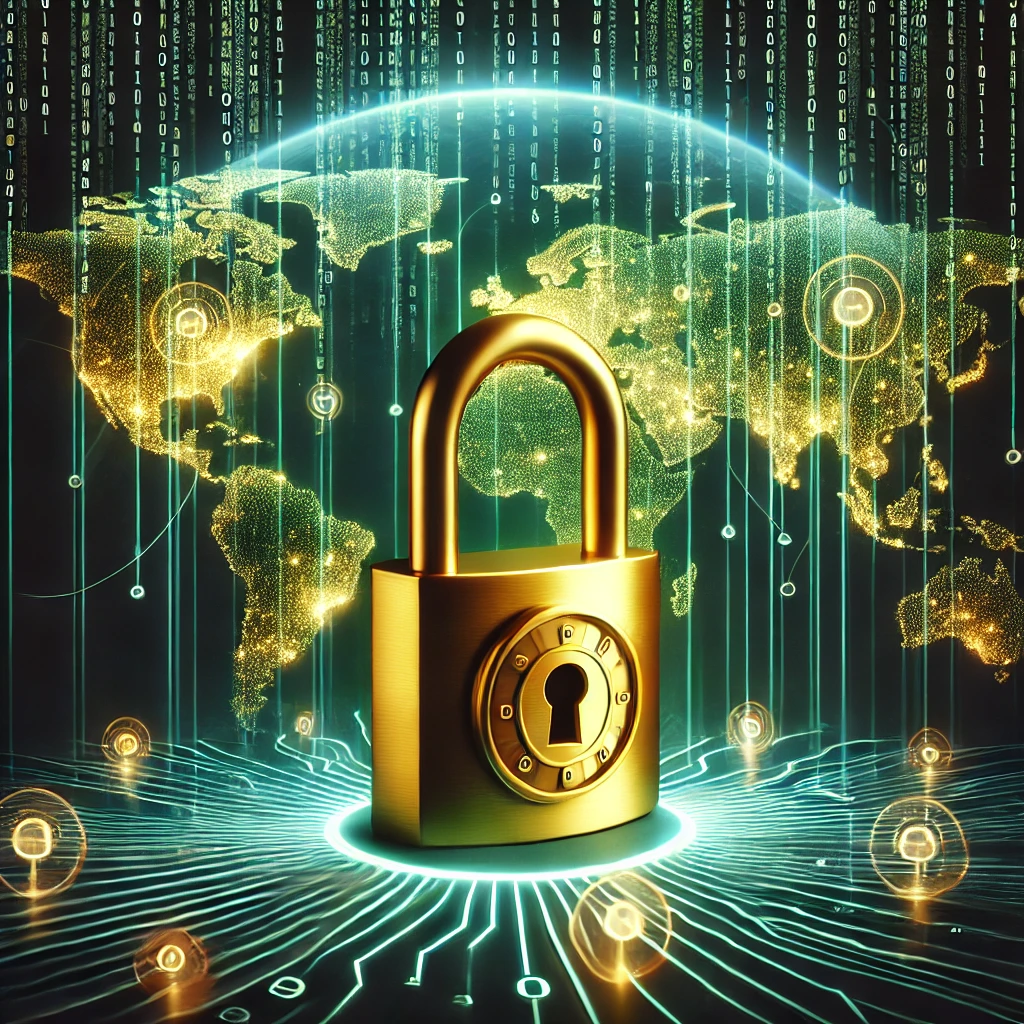Summary
The blog highlights the Salt Typhoon cyber espionage campaign, a major cybersecurity threat targeting U.S. telecommunications companies. Allegedly orchestrated by Chinese hackers, the attack has compromised sensitive metadata, call records, and audio intercepts. Eight major telecom firms were impacted, exposing vulnerabilities in critical infrastructure. The post delves into the campaign’s methods, implications, and preventive strategies.
Key takeaway: By adopting robust cybersecurity practices such as strong passwords, two-factor authentication, and regular updates, individuals and organizations can mitigate risks posed by sophisticated cyber threats like Salt Typhoon.
Protect yourself and your data by staying informed and implementing advanced security measures. This incident underscores the critical need for both personal vigilance and systemic improvements in cybersecurity.
The recent cyber espionage campaign, dubbed Salt Typhoon, has raised significant concerns about the security of U.S. telecommunications infrastructure. Attributed to Chinese state-sponsored actors, this operation has compromised sensitive data across multiple telecom networks, underscoring the urgent need for robust cybersecurity measures.
Key Characteristics
Aliases: Salt Typhoon is also known by several other names, including:
- FamousSparrow
- GhostEmperor
- Earth Estries
- UNC2286 (FortiGuard Labs, 2024)
Primary Targets: The group has focused its efforts on:
- United States
- Southeast Asia
- Various African countries (FortiGuard Labs, 2024)
Industries Targeted:
- Telecommunications
- Government
- Hospitality (FortiGuard Labs, 2024)1
Objectives: Salt Typhoon’s primary goals are cyber espionage and data exfiltration (FortiGuard Labs, 2024).
Notable Activities
The group gained significant attention in 2024 for its massive breach of U.S. telecommunications networks, described as the “worst telecom hack in U.S. history.” This attack, which began as early as 2022, compromised at least eight major telecom companies, including AT&T, Verizon, and T-Mobile (Green, 2024).
The Salt Typhoon campaign has had far-reaching impacts:
- Accessed metadata of numerous individuals, particularly in the Washington D.C. area.
- Targeted communications of senior U.S. political figures, including presidential candidates.
- Compromised the system used by law enforcement for court-ordered monitoring of phone numbers.
- Potentially obtained information about Chinese spies and informants under U.S. surveillance.
Despite ongoing efforts to remove the hackers from compromised systems, U.S. officials have stated that Salt Typhoon maintains access to many telecommunications networks.
While the Chinese government has denied involvement in these cyberattacks, U.S. officials maintain that China backs Salt Typhoon and represents a significant threat to national security (Green, 2024).2
Scope and Impact of Salt Typhoon

Salt Typhoon represents a sophisticated cyberattack targeting major U.S. telecommunications companies, including Verizon, AT&T, and Lumen Technologies. The breach has resulted in unauthorized access to vast amounts of metadata and, in certain instances, the content of communications. This intrusion poses substantial risks to national security and individual privacy.
The Federal Bureau of Investigation (FBI) and the Cybersecurity and Infrastructure Security Agency (CISA) have issued advisories urging telecom firms to enhance their security protocols. Recommendations include implementing encryption, centralizing network management, and monitoring continuously to detect and prevent unauthorized access (Associated Press, 2024).3
Government Response and Legislative Actions

U.S. government agencies have conducted classified briefings for lawmakers to assess the situation and formulate appropriate responses to the breach. Senators Ron Wyden and Eric Schmitt have called for investigations into the Department of Defense’s handling of telecom security, emphasizing the necessity for stringent measures to safeguard sensitive communications (Shepardson, 2024).4
The Federal Communications Commission (FCC) has proposed new regulations requiring telecommunications companies to certify their cybersecurity practices annually. These measures hold companies accountable for protecting their networks against sophisticated cyber threats (The Verge, 2024).5
International Implications
The Salt Typhoon campaign is not confined to the United States; it has reportedly affected telecommunications networks in multiple countries. This widespread impact highlights the global nature of cyber threats and the importance of international cooperation in addressing cybersecurity challenges.
Chinese officials have denied involvement in the cyber espionage activities, dismissing the allegations as disinformation. However, U.S. authorities maintain that the evidence points to state-sponsored actors orchestrating these attacks (Reuters, 2024).6
Protective Measures for Individuals and Organizations

In light of the Salt Typhoon incident, individuals and organizations must adopt comprehensive cybersecurity practices:
- Utilize Encrypted Communication Channels: Employ messaging applications that offer end-to-end encryption, such as Signal or WhatsApp, to protect the content of communications from unauthorized access.
- Implement Strong Authentication Mechanisms: Use multi-factor authentication (MFA) to add an extra layer of security beyond passwords, making it more challenging for attackers to gain unauthorized access.
- Regularly Update Software and Systems: Ensure all devices and applications are updated with the latest security patches to mitigate vulnerabilities that cybercriminals could exploit.
- Conduct Continuous Network Monitoring: Implement intrusion detection systems and monitor network traffic for unusual activities that may indicate a security breach.
- Educate and Train Personnel: Provide regular cybersecurity training to employees to recognize and respond appropriately to phishing attempts and other social engineering tactics.
- Develop and Test Incident Response Plans: Establish clear protocols for responding to cybersecurity incidents and conduct regular drills to ensure readiness.
Closing Thoughts
The Salt Typhoon cyber espionage campaign is a stark reminder of the vulnerabilities inherent in modern telecommunications infrastructure. Addressing these challenges requires a concerted effort from government entities, private sector organizations, and individuals. By implementing robust cybersecurity measures and fostering international collaboration, it is possible to mitigate the risks posed by such sophisticated cyber threats.
References
- FortiGuard Labs. (2024). Salt Typhoon – Threat Actor. Retrieved from https://www.fortiguard.com/threat-actor/5557/salt-typhoon ↩︎
- Green, J. J. (2024, December 6). The worst telecommunications hack in US history: Chinese cyber group ‘Salt Typhoon’ intrusions likely started years ago. WTOP News. Retrieved from https://wtop.com/j-j-green-national/2024/12/the-worst-telecommunications-hack-in-us-history-chinese-cyber-group-salt-typhoon-intrusions-likely-started-years-ago/ ↩︎
- Associated Press. (2024, December 4). FBI tells telecom firms to boost security following wide-ranging Chinese hacking campaign. Retrieved from https://apnews.com/article/41ca253307e3eba2c34b3dc34dadcbeb ↩︎
- Shepardson, D. (2024, December 9). US agencies to brief House on Chinese Salt Typhoon telecom hacking. Reuters. Retrieved from https://www.reuters.com/technology/cybersecurity/us-agencies-brief-house-chinese-salt-typhoon-telecom-hacking-2024-12-09/ ↩︎
- The Verge. (2024, December 5). US phone companies could face fines for weak security under a proposed new rule. Retrieved from https://www.theverge.com/2024/12/5/24314330/fcc-telecom-security-rule-salt-typhoon-hack ↩︎
- Reuters. (2024, December 4). ‘Large number’ of Americans’ metadata stolen by Chinese hackers, senior official says. Retrieved from https://www.reuters.com/technology/cybersecurity/large-number-americans-metadata-stolen-by-chinese-hackers-senior-official-says-2024-12-04/ ↩︎






Leave a Reply